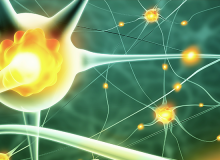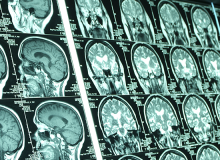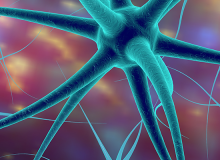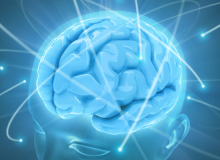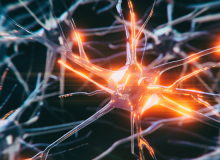The Sydney Memory and Ageing Study (MAS), is one of Australia’s largest and longest running studies of ageing and cognitive health. MAS began in 2005 with the aims of investigating rates and predictors of healthy cognitive ageing, mild cognitive impairment (MCI) and dementia in older Australians. Over the last 14 years, MAS has collected biomarker, genetic/epigenomic, neuroimaging, cognitive, proteomics/lipidomics, health, and lifestyle data to determine what factors are associated with cognitively normal ageing and progression to MCI or dementia.
Projects
CHeBA Longitudinal Studies
The original study, Sydney Memory and Ageing Study (MAS), ran for 14 years and is one of Australia’s largest and longest running studies of ageing and cognitive health. Over 200 publications using MAS data have appeared in a large range of respected national and international journals.
Despite the rapid ageing of our population there have been only a few population-based studies of centenarians and near-centenarians internationally, and none in Australia. The study of exceptionally long lived individuals will shed light on the determinants of successful aging, both environmental and genetic. It will also help us understand the health care requirements of this group and enable us to plan accordingly.
The Older Australian Twins Study is a longitudinal study investigating healthy brain ageing in older twins (65+ years). Healthy ageing is characterised by low levels of disability, high cognitive and functional capacity, and an active engagement in life. The most important ingredient of healthy ageing is a healthy brain, bereft of age-related diseases and dysfunction. Brain ageing and brain diseases are determined by multiple genetic factors that interact with environmental influences. Since identical twins share 100% of their genetic code, whereas non-identical twins share half their genetic information, detailed comparisons of these two groups has the potential to discover new genes involved in cognitive decline or resilience.
Maintain Your Brain is a randomised controlled trial of multiple online interventions designed to target modifiable risk factors for dementia in general and AD in particular. Risk factors to be addressed are physical inactivity, cognitive inactivity, depression/anxiety, overweight and obesity, and poor dietary habits. Up to four intervention modules (physical activity, nutrition, brain training, and peace of mind) will be administered based on individual risk profiles. All activities and assessments will be conducted on a computer with internet access via the Maintain Your Brain eHealth platform.
All CHeBA Projects
Specifically, we are asking how various biomarkers measured in individuals with Vascular Cognitive Impairment and Dementia differ from unaffected control subjects? We also seek to determine which combination of neuroimaging, retinal, and fluid biomarkers can accurately predict vascular dementia diagnosis and/or reflect the presence of significant cerebrovascular disease to account for dementia and cognitive decline.
This project aims to establish an Australian cohort of patients diagnosed with Cerebral Autosomal Dominant Arteriopathy with Subcortical Infarcts and Leukoencephalopathy (CADASIL) to examine the clinical features and longitudinal course and investigate neuroimaging and blood biomarkers for an early diagnosis and disease progression.
ADNeT brings together 25 researchers across 15 Australian institutions, including the University of Melbourne, UNSW Sydney’s Centre for Healthy Brain Ageing (CHeBA), Monash University, Austin Health, Edith Cowan University, CSIRO, Flinders University, Macquarie University, NeuRA, QIMR Berghofer, SAHMRI, University of Newcastle, University of Sydney, University of Tasmania and the University of Queensland. These researchers and institutions are working on three key initiatives:
Some cognitive abilities ‘naturally’ decline as we get older. The prevalence of Alzheimer’s disease and other dementias increases with older age. Therefore, distinguishing dementia and mild neurocognitive impairment from normal age‐related cognitive change is a major challenge for clinicians and researchers.
Recent brain stimulation research suggests that mild brain stimulation (ie. tDCS) when given during performance of a cognitive (memory) task in a single session improves performance. Also patients who have had a stroke learn how to do certain 'hands-on' tasks better when participants receive a course of brain stimulation treatment. There is research that computerised brain training benefits people with memory problems (ie. MCI or Mild Cognitive Impairment). People with aMCI experience mild difficulties with their memory but are otherwise functioning well in their day to day activities. Usually the individual notices that their memory has recently got worse compared to a few years ago. They may experience more difficulty remembering names, appointments or where they put something. People with aMCI are at increased risk of future dementia.
Dementia is a major health problem with 200 Australians diagnosed every day and at least as many having mild cognitive impairment which often precedes dementia. Early diagnosis is critical for interventions yet many older adults at risk do not receive a timely diagnosis. Objective assessment of cognitive abilities is essential for accurate diagnosis at mild or early stages. However, there are insufficient specialist trained personnel and resources to meet the demand for cognitive assessments.
The aim is to develop a computerised assessment tool to measure the ability to complete daily tasks such as shopping and finances. The tool will help clinicians identify early cognitive changes that may be associated with dementia.
This project aims to reconsider the Vascular Behavioural and Cognitive Disorders criteria (i.e. VASCOG) based on developments in the field of dementia diagnostics since the criteria were first published in 2014. The Delphi process will include three rounds, including two feedback rounds; therefore, a total of three surveys.
The International Centenarian Consortium of Dementia (ICC-Dementia) aims to explore factors that predict successful ageing into the 11th decade of life that are robust across international cohorts through international collaboration and data sharing. This project is motivated by the variation in approaches for diagnosing dementia and cognitive impairment across studies and the under-studied questions including the global prevalence of dementia in persons aged 95 and above and the risk and protective factors for dementia across ethno-regional groups of long-lived individuals.
The objective of DPAU is to support researcher access to data from one or several Contributing Research Studies (CRS) and thereby enable new insights into ageing, ageing-related diseases and dementia risk, with the aim of transforming the epidemiology of ageing and dementia.



